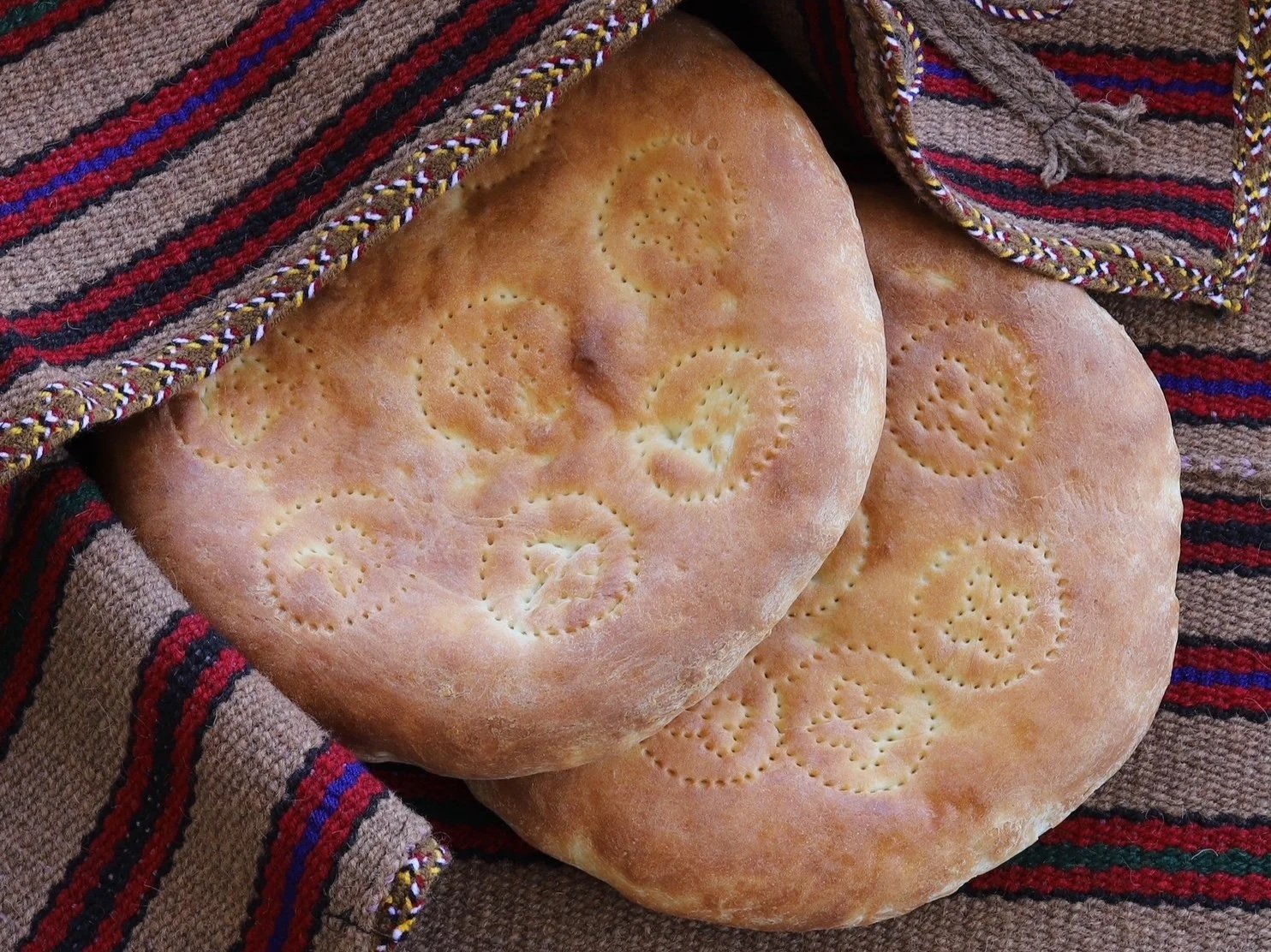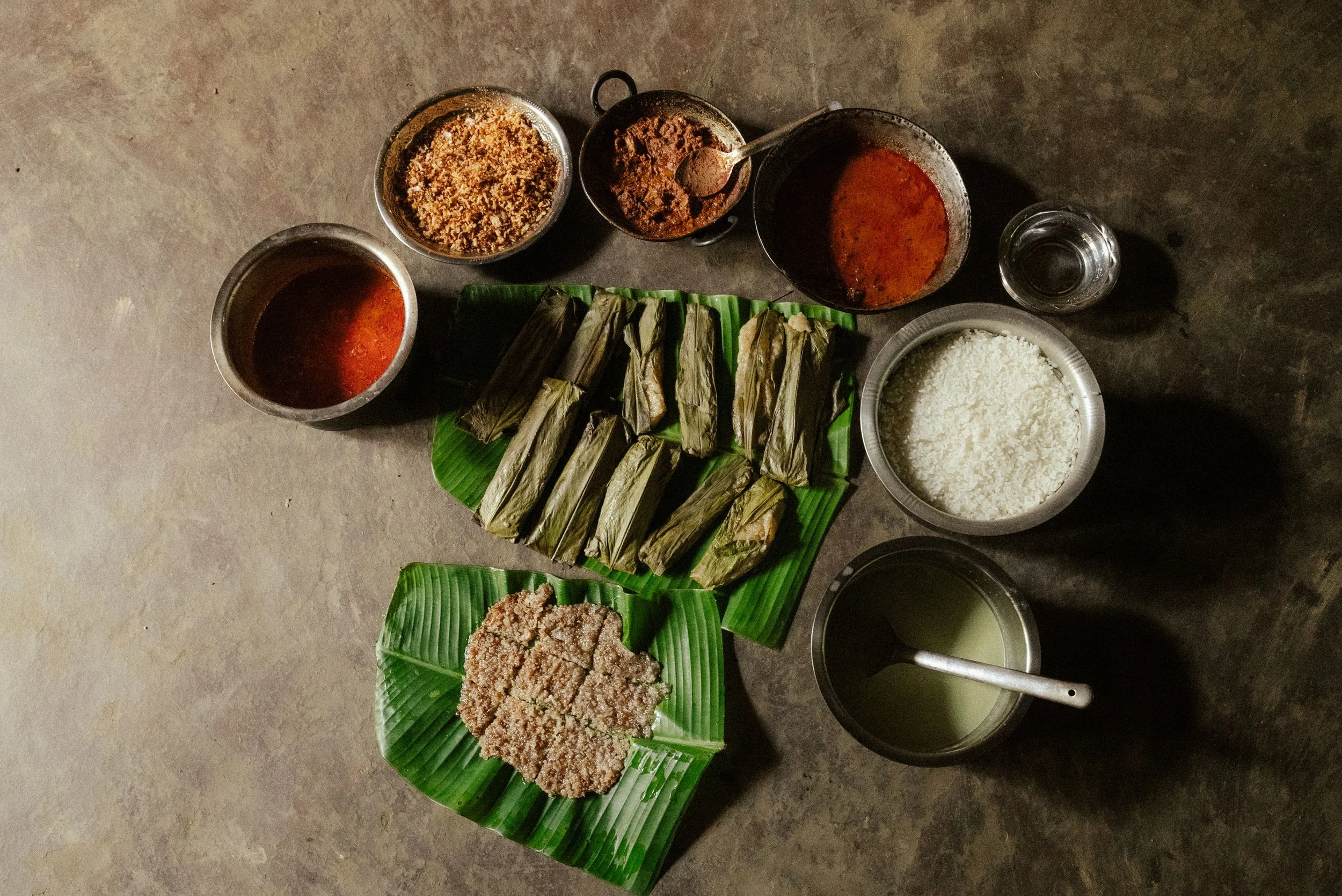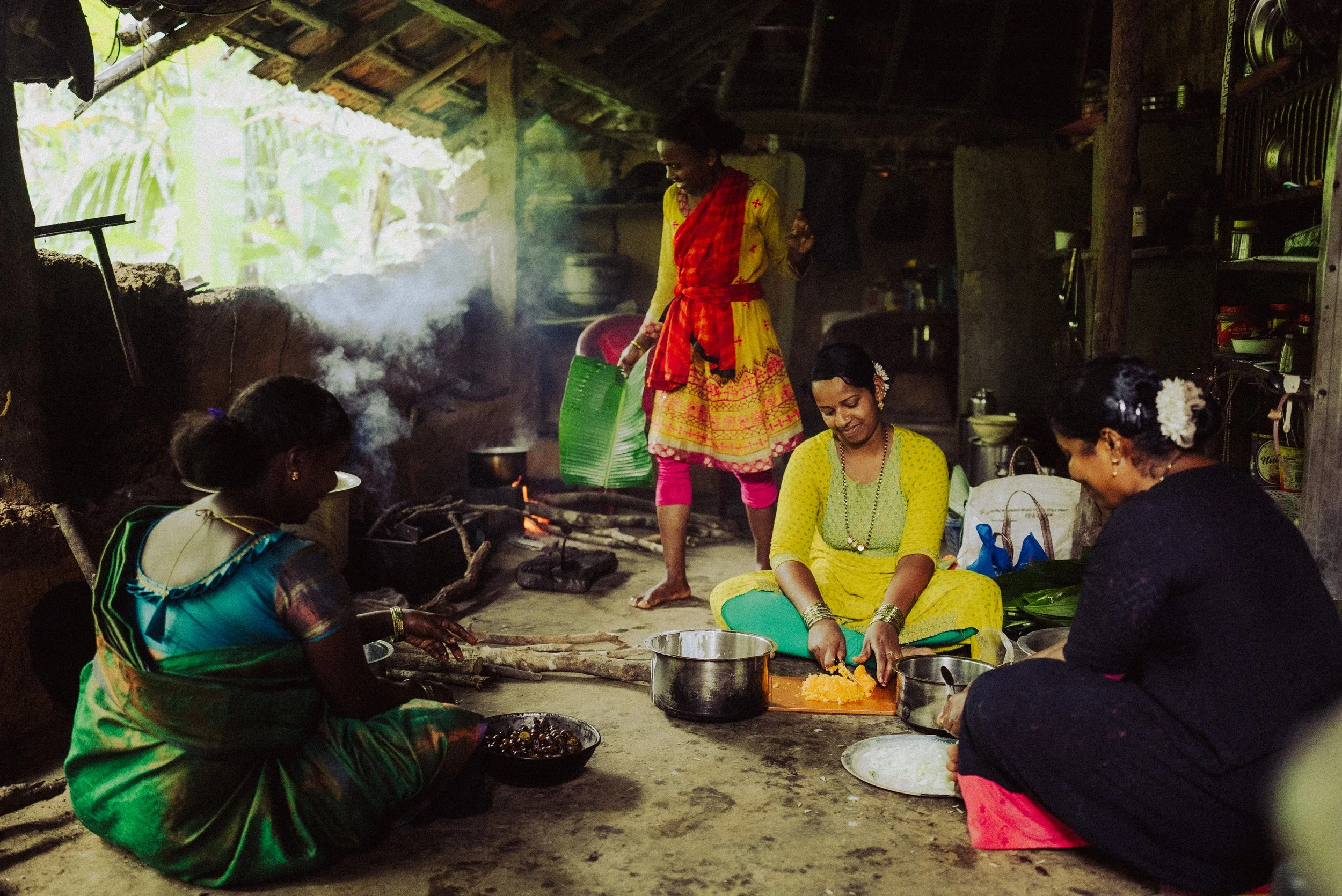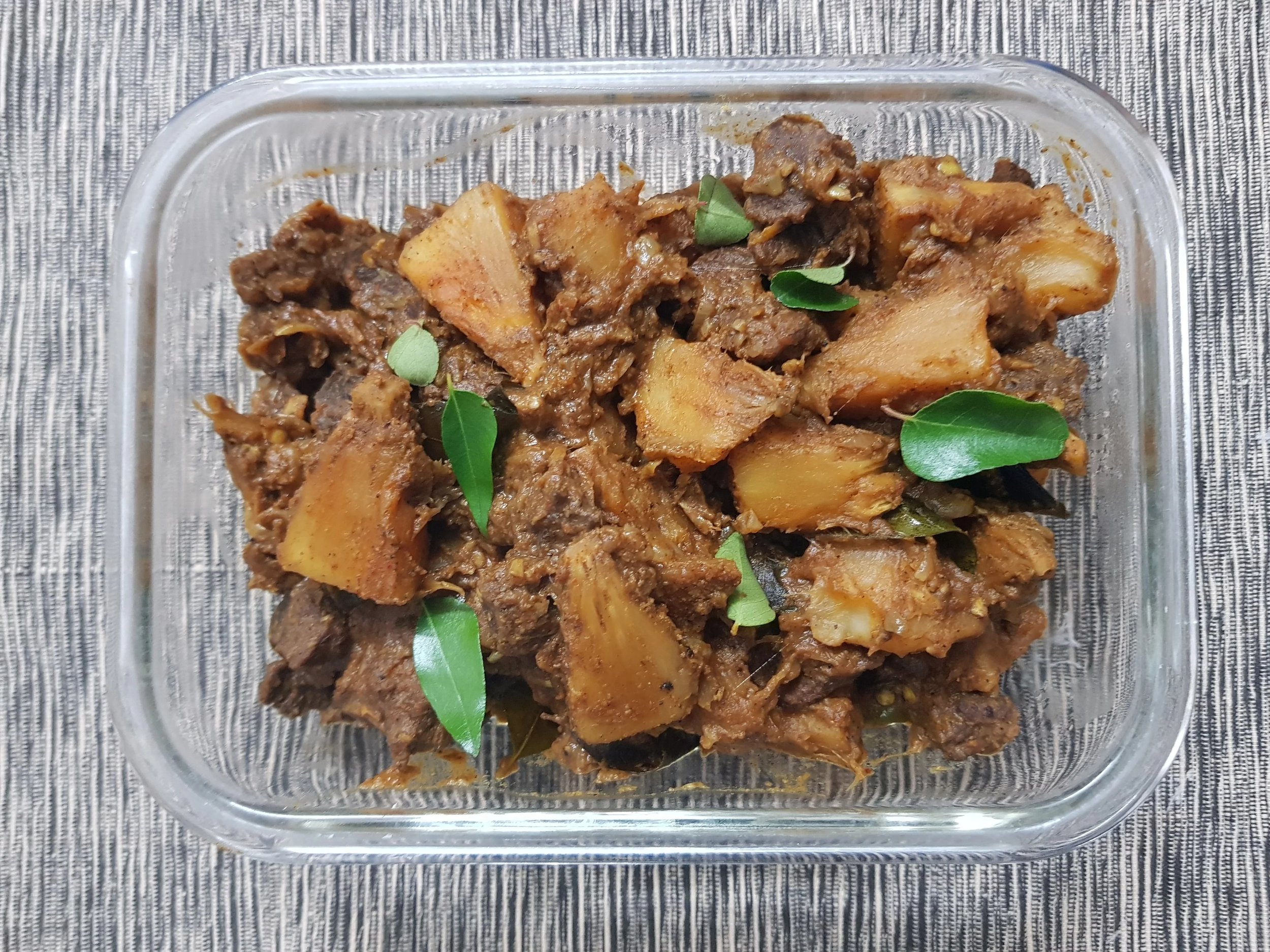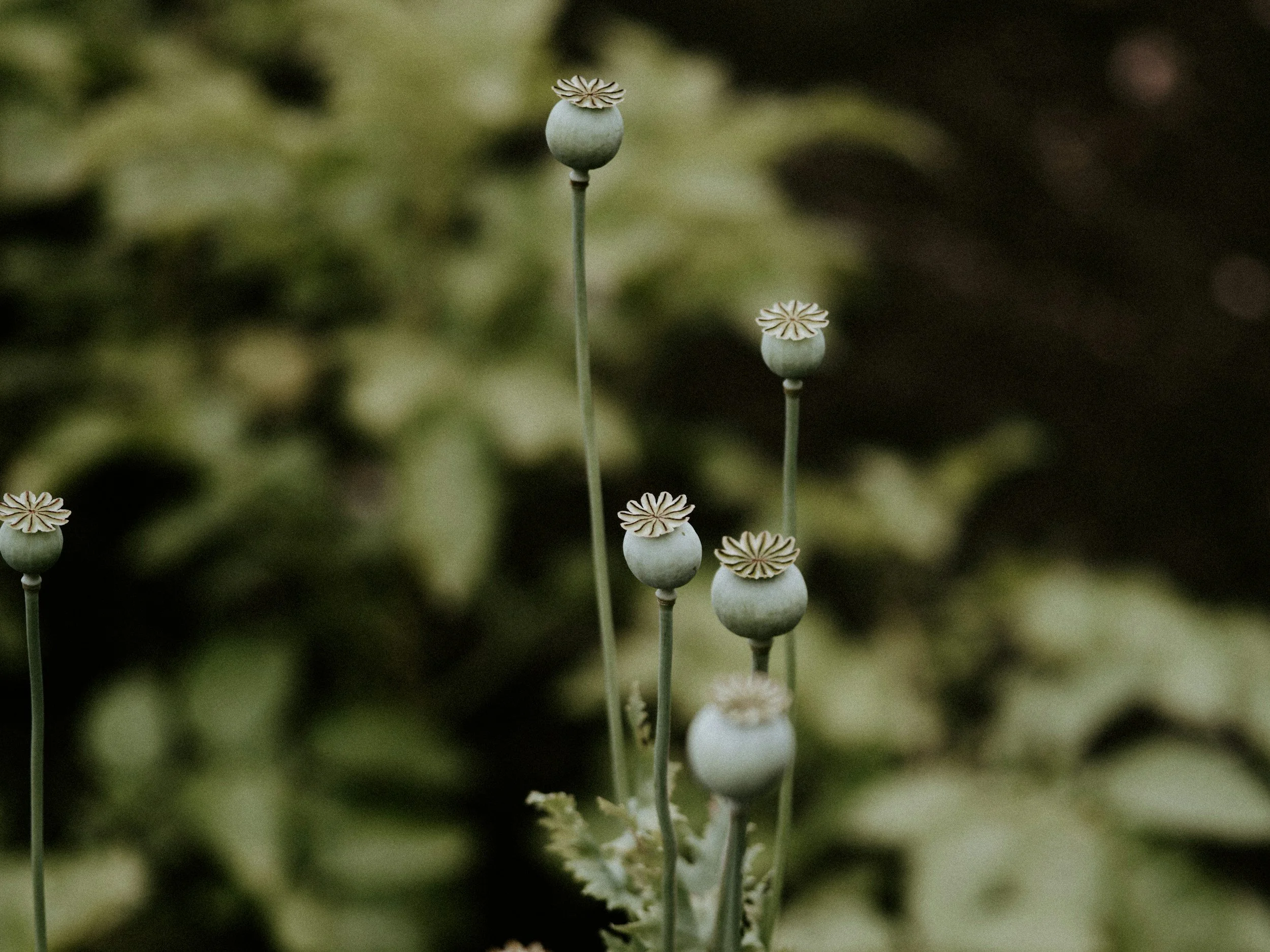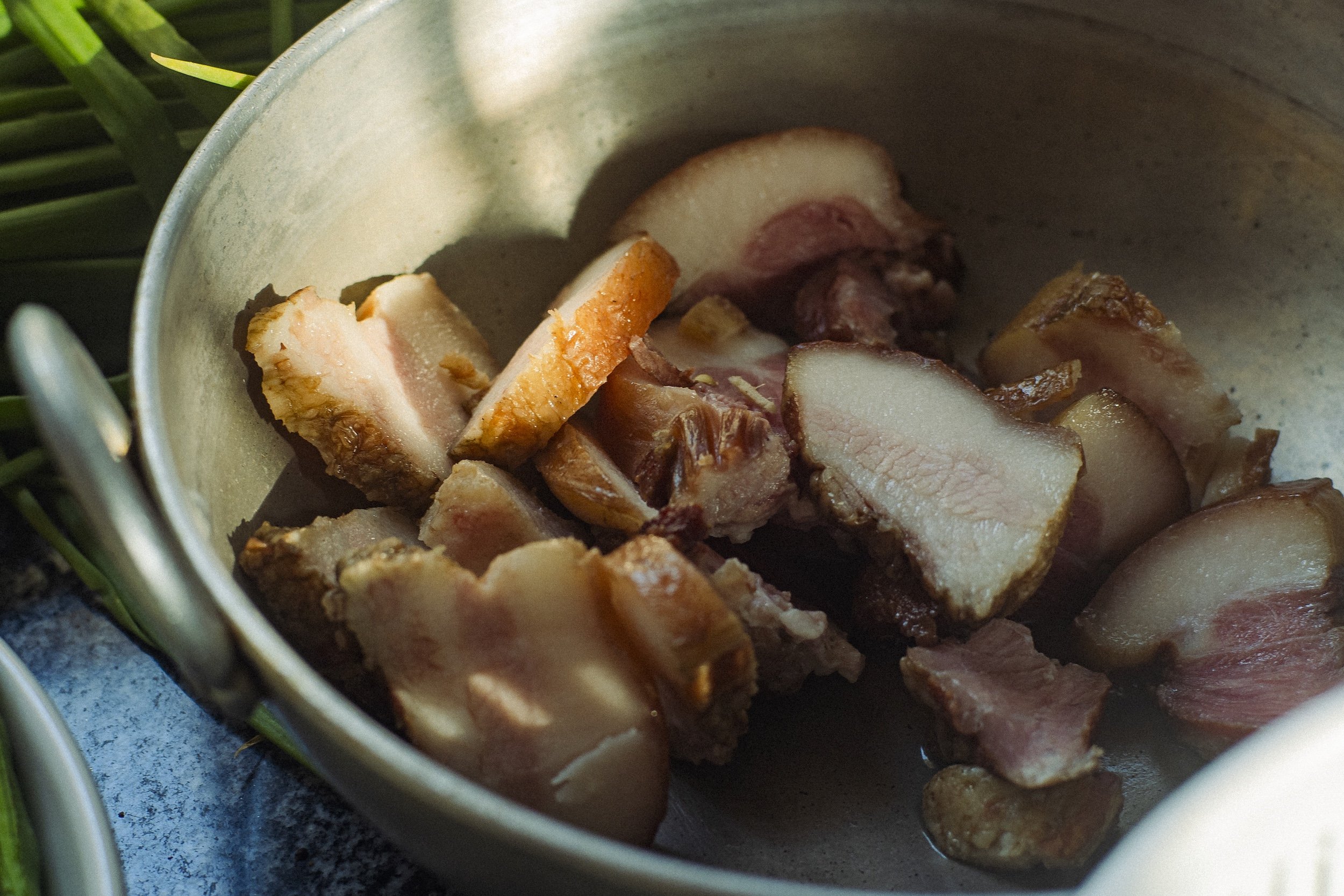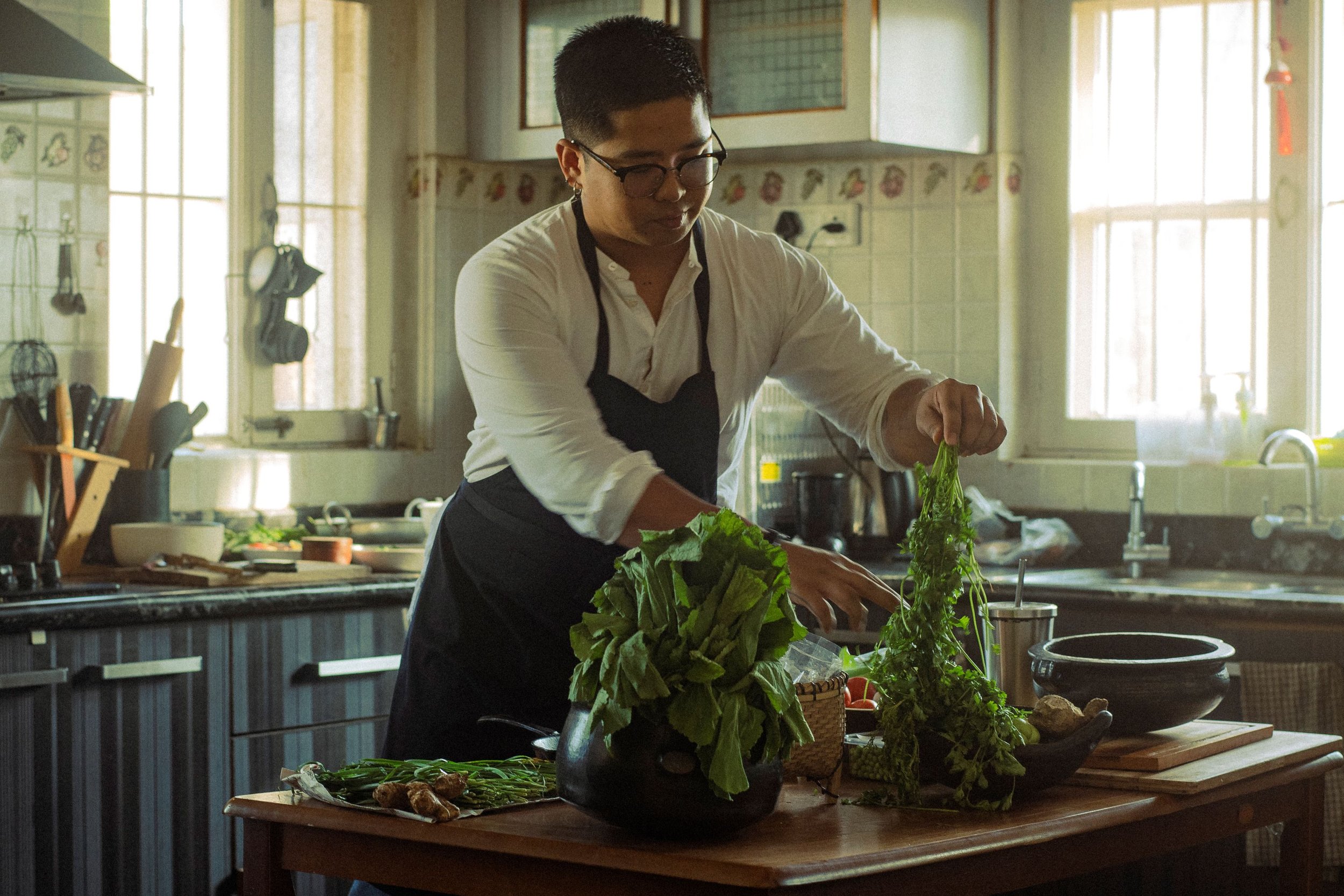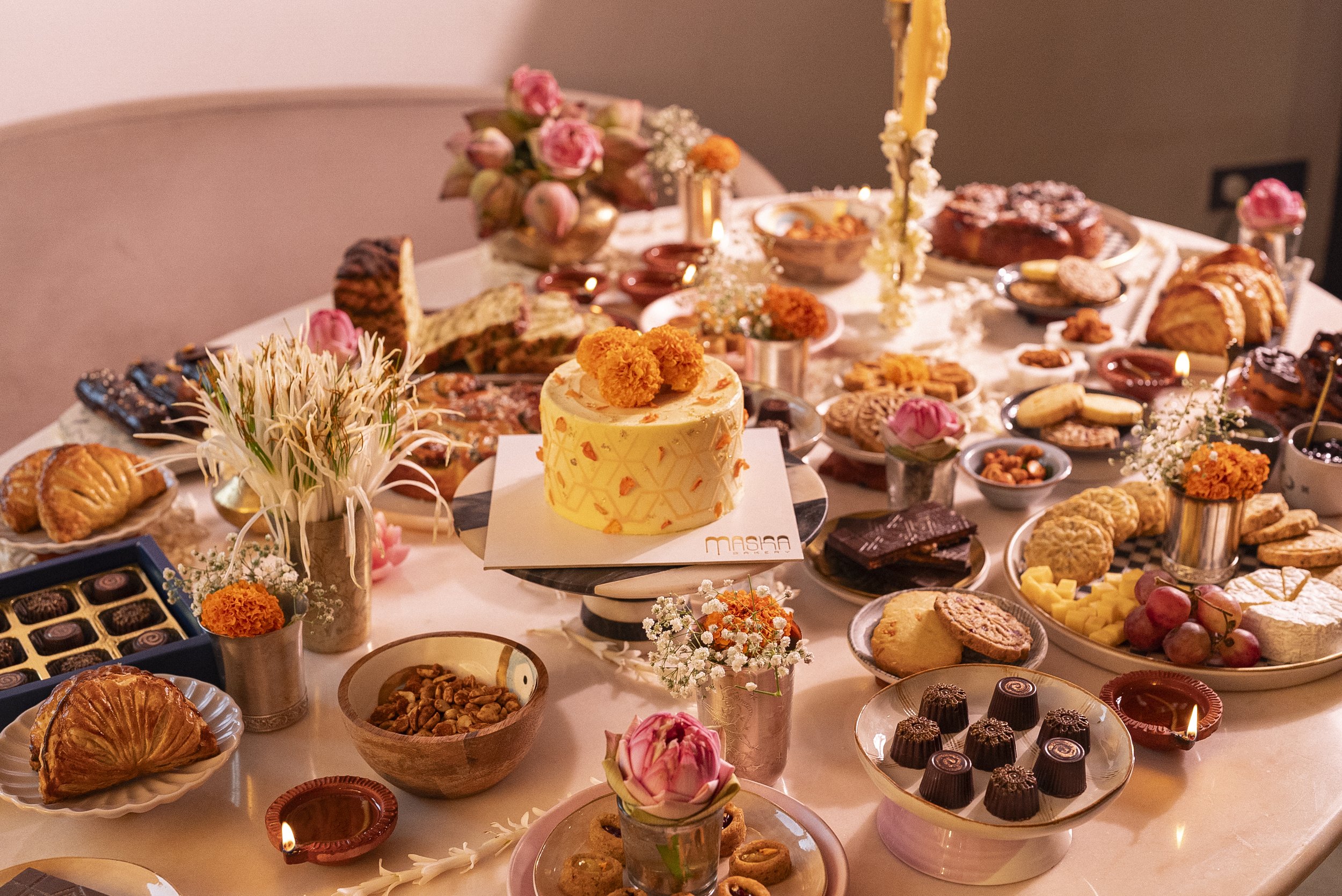At Home with Avijit & Shilo

#1000Kitchens is a series that takes you into kitchens all over the country, documenting heirloom recipes that tell a story. In this instalment, Avijit Michael cooks us his unusual take on the classic Kerala stew.
Avijit pulls out an egg from the fridge, makes a tiny hole in the top and kneels by the wooden kitchen table like a yogi, waiting for the whites to drip into the plate below. It’s a quarter past 11 on Saturday morning. We’re at Avijit and Shilo’s home in Bangalore, and he’s cooking lunch. “If there’s any cooking that happens at this house, it's usually me,” he laughs.
Avijit Michael gives off a deceptively easy-going air, with his long, windblown hair, relaxed Saturday attire, and thoughtful, unhurried speech. But the former Global Development Director at Change.org, will surprise you. He currently heads Jhatkaa, a young, independent NGO that builds tech to help citizens engage in the democratic process at the grassroots level. Rock fans around the country know him as the keyboardist from Zebediah Plush, the band that always gets Bangaloreans nostalgic. And between all of that, he finds the time to dash between the city and his second home in Kodaikanal, where he is working to build a farm.
“I popped in to the supermarket around the corner, but they only had basa. I was hoping for seer fish, but I guess we’re having basa for lunch.” Originally from Calicut, Avijit quickly issues a disclaimer when he realises that he’s surrounded by folk from the Motherland – “Ente Malayalam bhayankara mosham.” But that isn’t stopping him from cooking the native cuisine. Lunch is a traditional Kerala stew, with brown basmati rice. The stew is his mother’s recipe, but since Avijit and Shilo are both pescatarians, he is making it with fish and mushroom instead of chicken. This is a variation none of us have sampled, but given the home we are in today, unusual is only to be expected.
The stovetop sits on a large wooden table facing an open window; there’s a cupboard and fridge in the kitchen, resting on cool blue tiling. Avijit rummages through the cupboard. “Can’t find the salt,” he says. “I’m still getting used to this house.” Shilo and her mum, artist Nilofer Suleman, have only recently moved to their new home. It is clearly a labour of love. Bright rooms with warm floors, white abobe walls, double-height ceilings, and expansive windows that flood every room with light. There are flowers everywhere. Flowers, art and agarbatti.
The kitchen hasn’t been fitted with a tap yet, and Avijit heads outside to fill the pot with water. “Sorry, it’s a mess.” A beautiful mess, we correct him and Avijit laughs. “It’s a real art-house,” he agrees. “You can tell where the family’s priorities are at. The art was all up as soon as they moved in, but the kitchen isn’t done yet. Nilu sleeps on the sofa because her bed hasn’t come, but of course, her studio has been functional from the get-go.”
Shilo Suleman and Avijit Michael make fish stew | #1000Kitchens
Nilofer's work is full of intricate detailing, each closer inspection revealing more delightful minutiae and humourous observations into the country’s cultural eccentricities. The details in her art are the giveaway to her training as a cartographer. Shilo's art carries her mother’s sensibilities, but is also undeniably entirely her own – full of strong feminist leitmotifs, and recurring themes of magical realism.
Did we just spot bags of flowers in the refrigerator? “Roses, yes. There’s always flowers in this fridge,” he chuckles.
Avijit strips a twig of curry leaves. “Curry leaves and ginger are key to the stew,” he says. His mother’s recipe calls for the addition of a handful of fennel seeds, something that the traditional Christian recipe does not include. But growing up surrounded by Muslim friends in Calicut, this was a technique she picked up and incorporated into her own recipe. The doorbell rings. “That will be Shilo. Will you get it?”
Shilo enters the kitchen and the energy changes. Avijit’s zen frequency is elevated by Shilo’s spirit. She hugs us, peeks into the pot on the fire, then reaches into the cupboard for a snack: blue cheese drizzled generously with honey. “This is the extent of my cooking abilities,” she laughs. “So this is the smash-the-patriarchy story! Man cooks for unmarried lover and her mother.” She giggles.
Shilo in person is incongruous with Shilo of the Fearless Collective. The powerful, ground-breaking campaign that began as a response to the December 2012 rape, took on a life of its own, reinforcing fearlessness in times of devastating misogyny and cruelty to women. But here today, she is relaxed and unguarded, laughing easily. We chat about her travels to Karachi, and what it is like being a woman in India and Pakistan. This year she is travelling to Lebanon, Romania, Tunisia and Kiribati as part of the Fearless movement.
Her most recent work is the wall in KR Market and is special in that, for the first time, Fearless is engaging with men. When Shilo paints a wall, it is a community event; the concept and the subject developed in collaboration with the community that occupies that space – and in this case, the men at the flower market. Was it harder than she expected? “Oh yes, there were a lot of fights in the beginning. It was a process; getting to know the flower vendors, getting to love them, and they eventually, falling in love with me.”
“The larger issue we were working with was the idea of gentleness and softness; the emotional spectrum in the realm of what it means to be masculine. In the beginning there was a lot of hostility – they wanted to paint the Maharaja. No way I was painting another maharaja in Bangalore! But then you hang out with them, they see you coming and painting everyday, and eventually, they learn to love you.”
“Now she’s a queen in the market,” Avijit laughs. “They send her back with bags of flowers every time.”
The aroma of bayleaf fills the kitchen; lunch is ready. Phones are whipped out for Instagram stories. “Shall we move the food to the table? Where are all the bowls?”
The bowls are being used for flowers.
The table is laid, hibiscus juice is poured into wine glasses. The brown basmati smells nutty and tastes caramel-ly, and the stew brings it all together. Whole peppercorns and bits of ginger lend the dish a homemade comfort, the rich depth of coconut milk making it the perfect meal for a cold January afternoon.
Recipe: Avijit's Fish & Mushroom Stew
Prepping the fish
700 g fish fillets (preferably seer fish)
1 tsp red chilli powder
1 tsp turmeric powder
1 egg white
3 tbsp coconut oil
Coat the fish fillets with egg white, chilli and turmeric powder.
Shallow fry the fillets in coconut oil.
The Stew
1 onion, chopped
2 sticks of cinnamon
3 cloves
1 star anise
3 pods of cardamom
1 pinch of saunf
1 onion, chopped
2 tbsp black peppercorns
2 green chillies slit
1.5 l coconut milk
500 ml water
1 pkt button mushrooms, sliced
Tadka
1 onion, sliced
3 sticks of curry leaves
1 inch ginger root, julienned
Pinch of garam masala
2 tbsp coconut oil
Method
Heat oil in a pot.
Fry the onion, mushroom with spices. Add the fish and coconut milk and bring to a simmer. Do not allow to boil.
Fry the tadka in a separate pan.
Add to the stew.
Serve warm.
Words by Anisha Rachel Oommen and photos by Aysha Tanya; Illustration by Tasneem Amiruddin.
YOU MAY ALSO LIKE








